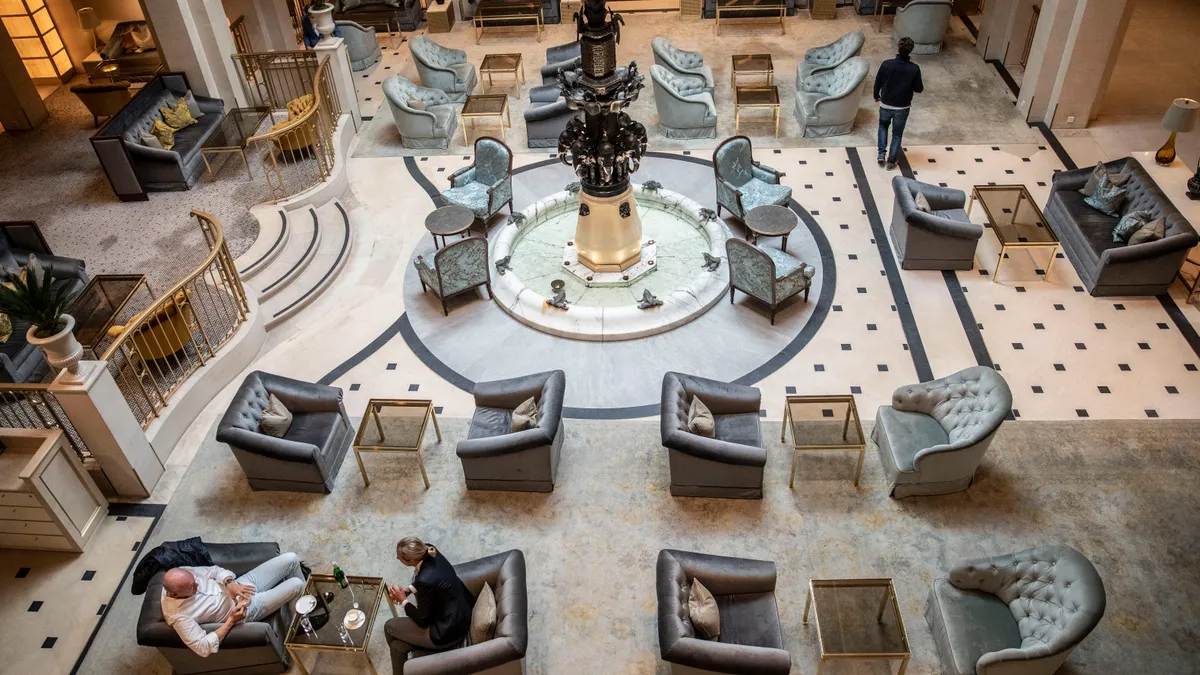Dive Brief:
- A recent study from the University of Houston’s Conrad N. Hilton College of Global Hospitality Leadership examines hotel guests’ acceptance of artificial intelligence-based systems that make decisions for them when staying at hotels.
- Researchers found that hotels need to ensure the decisions being made about AI are perceived as ethical and beneficial for guests.
- As AI continues to reshape the industry, enabling hotels to provide even more personalized services for guests, hospitality companies need to acknowledge the benefit-risk tradeoff consumers face and communicate how their information is being used to make decisions.
Dive Insight:
Although many hoteliers understand how AI can improve hotel operations and efficiency by automating processes such as booking and contactless check-in, they have less insight into how guests feel about the use of the technology to manage their stay.
That’s why researchers from the University of Houston’s Conrad N. Hilton College of Global Hospitality Leadership set out to gain insight into the concept of technology agency — meaning an intelligent agent’s ability to act independently on behalf of the user — in the hospitality industry, with a study that used data collected from 400 U.S. hotel guests.
Overall, researchers discovered that guests want hotels to prioritize transparency around AI usage. “When guests perceive the AI decision as unethical or incompetent, it has a negative impact on their experience and willingness to engage with it,” said the study’s author, professor Cristian Morosan.
“The bottom line is consumers are ready to accept AI technology in their travel experiences,” he said. “The more hotels focus on the ethics and benefits of the decisions the AI makes, the more likely consumers would use the technology and incorporate it into their entire experience. It just needs to be integrated with humans because they’ll always want that personal touch.”
AI continues to reshape the hospitality industry, enabling hotels to provide more highly personalized services by tailoring recommendations, anticipating preferences and providing more seamless interactions. It also allows staff to focus their time on providing better guest experiences.
In order to ease guests’ concerns regarding the tech, “hotels can communicate their utilization of AI-based business models using a variety of marketing strategies,” according to the study’s findings. “Such strategies may be aimed at early adopters to stimulate exploratory use and may portray the ways hotels build competitive advantages by simplifying consumers’ access and fulfillment of services on the property.”
The authors also state that hotels need to acknowledge that consumers are engaging in a benefit-risk tradeoff. This means that companies need “to provide a clear explanation of the decisions that could be made by AI-based agents, the information required for decision-making and the likely expected outcomes (e.g. satisfaction, conversion and retention).” Additionally, hotels can also reassure guests that any AI-based decisions can be reversed by staff.








